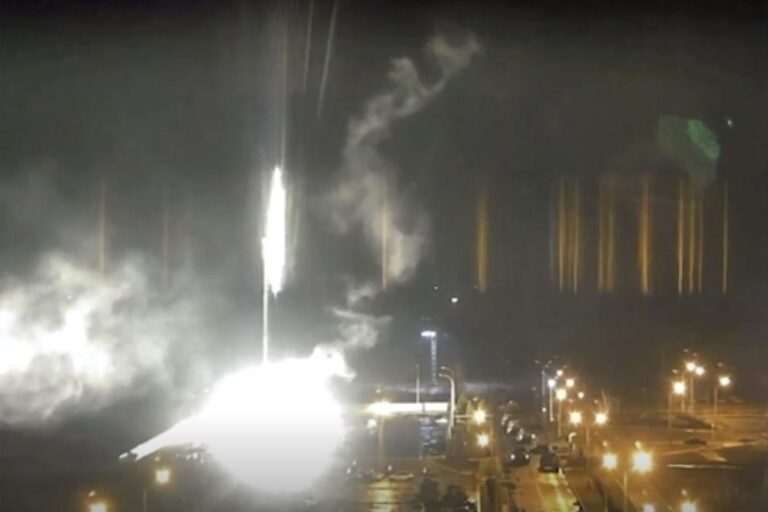
(AP) — Russian forces shelled Europe’s largest nuclear plant early Friday, sparking a fire as they pressed their attack on a crucial energy-producing Ukrainian city and gained ground in their bid to cut off the country from the sea.
Leading nuclear authorities were worried — but not panicked — about the damage to the power station. Ukrainian officials later said that radiation levels in the area weren’t at dangerous levels. The assault, however, led to phone calls between Ukrainian President Volodymyr Zelenskyy and U.S. President Joe Biden and other world leaders. The U.S. Department of Energy activated its nuclear incident response team as a precaution.
The attack on the eastern city of Enerhodar and its Zaporizhzhia nuclear plant came as the invasion entered its second week and another round of talks between Russia and Ukraine yielded a tentative agreement to set up safe corridors to evacuate citizens and deliver humanitarian aid.Nuclear plant spokesman Andriy Tuz told Ukrainian television that shells fell directly on the facility and set fire to one of its six reactors. That reactor is under renovation and not operating, but there is nuclear fuel inside, he said.
Hours later, there was still confusion about what was happening at the plant.
The Zaporizhzhia regional military administration said that measurements taken at 7 a.m. Friday (0500 GMT) showed radiation levels in the region “remain unchanged and do not endanger the lives and health of the population.”Ukraine’s state emergency service announced on Facebook on Friday that “the fire in the training building of Zaporizhzhya NPP in Enerhodar was extinguished. There are no victims.” It did not mention the fire in a reactor building that had raised international concern.
The mayor of Enerhodar, Dmytro Orlov, announced on his Telegram channel Friday morning that “the fire at the (nuclear plant) has indeed been extinguished.” His office told The Associated Press that the information came from firefighters who were allowed onto the site overnight. The mayor’s office could not provide more details about which buildings were concerned.
Earlier, Ukrainian Foreign Minister Dmytro Kuleba tweeted a plea to the Russians to stop the assault.
“There is a real threat of nuclear danger in the biggest atomic energy station in Europe,” Tuz said in a video statement.
The assault renewed fears that the invasion could damage one of Ukraine’s 15 nuclear reactors and set off another emergency like the 1986 Chernobyl accident, the world’s worst nuclear disaster, which happened about 110 kilometers (65 miles) north of the capital.
British Prime Minister Boris Johnson called for an emergency meeting of the U.N. Security Council in “coming hours” to raise the issue of Russia’s attack of the nuclear power plant, according to a statement from his office.






